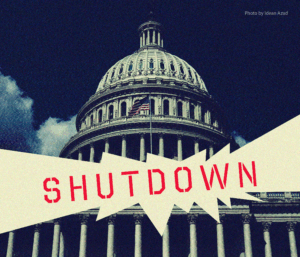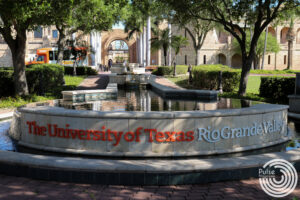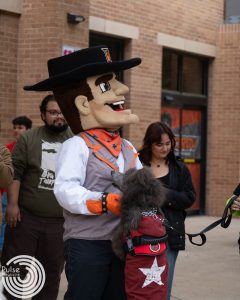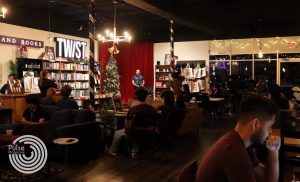In Honor of Hispanic (Latino, Latina, Latinx) Heritage Month
Hispanic? Latino? Latina? Latinx? Chicano? This month we recognize Hispanic Heritage Month celebrating our contributions, our legacies and our traditions. Te gustan los tacos? Margaritas? Baseball, golf or boxing? You can thank our Hispanic/Latin influences por eso. Yet, we are more than just the absorption of our traditions on American society. We must celebrate our complex identities and what it means to be Hispanic, Latino, Latina, Latinx, or Chicano and so on. To fully appreciate our uniqueness, we must acknowledge our histories and recognize (her)stories, too.
Appreciation of Hispanic/Latin heritage began as a week in 1968 endorsed by U.S. President Lyndon B. Johnson. Twenty years later, in 1988, the week was expanded into a month and signed into law by U.S. President Ronald Regan. Hispanic Heritage Month begins on Sept. 15, a day specifically chosen to commemorate the Independence Day of five Central American countries: Costa Rica, El Salvador, Guatemala, Honduras and Nicaragua followed by Mexico on Sept. 16. Miguel Hidalgo, padre de la independencia Mexicana, a progressive priest of the time called on his fellow Mexicans to rebel against the Spanish government. On this day his famous proclamation, “El grito de Delores” put Mexico on a decade–long path of revolutionary change and aided in independence for many other Latin American countries.
Revolutionaries such as Miguel Hidalgo, Mariano Matamoros, Jose Bernardo Maximiliano Gutierrez de Lara and his brother Jose Antonio Apolinario Gutierrez de Lara, to name a few, all made contributions to break free from the oppressions of Spain. However, let us not forget contributions from women that facilitated in Mexico’s independence as well. Isidora Valle was one such woman. Valle made her mark as a supplier of food and ammunition as well as messenger for the insurgents in the Sierra de Tamaulipas region. She was eventually captured, along with other insurgents who had joined the independence movement and was executed in Villa de Aguayo, now present day Cuidad Victoria, Tamaulipas. After her execution, her decapitated head and the heads of the other executed insurgents were taken to Ocampo, Tamaulipas, and displayed as a warning to other rebels in the area. These men and women deserve our recognition for their contributions and their bloodshed that led Mexico to be free. Free to inhibit their own identity of what it means to be Mexicano, Mexicana, or Latino. Yet, finding and owning that identity has proven to be a revolution all on its own.
Our struggles with identity begin with the conquest of Spain into Mexican indigenous territory. Our alleviation from Spanish rule brought with it change in the way we view ourselves. The demise of Aztec and Mayan empires and mixing of Spanish and Indigenous blood led to the creation of mestizos and from there, a unique mixing of cultures, traditions, religions and adoptions of Spanish language that we know today. An excerpt from the book “The New Mestiza Nation: A Multicultural Movement” by Valley native Gloria Evangelina Anzaldua reads, “The new mestiza … lives in borderlands between cultures, races, languages, and genders ... As mestizas we are negotiating these worlds every day, understanding that multiculturalism is a way of seeing and interpreting the world.” Piloting between her own mixed identity, she influenced generations of Latinos/Latinas/Latinx people to question their own uniqueness, especially those living in the Rio Grande Valley. She brought awareness to many contradictions of interconnecting identities and challenged the status quo to help change and invite a new way of interpreting the world around us.
“I’m glad that there is sort of, like, a little blip in the year where we’re kind of able to talk about it a little bit more. But for me, and for many people that I know here in the States, its year-round,” said MAIS in Mexican American Studies graduate student Pepe Garcia Gilling. For most Latinx/Hispanic persons, celebrating who they are and their roots does not just come once a year. Realizing and keeping conversations open about identity and the Latin/Hispanic community is a daily part of their lives. “Hispanic Heritage Month is a good opportunity to have that platform to talk about these things a little bit more. … There is a lot of invisibility of the people that have been doing so much for the country and it just goes unnoticed. ... But that is a symptom, right? And the consequence is that it comes back to us and affects our daily lives in job opportunities; it affects on how they talk to Latinas and Latinos, and Latinx on the streets.”
Latinx/Hispanic/Chicanx influences are closely tied to our population growth within the country. Hispanics, according to the U.S. Census Bureau, is the largest minority group in the United States. As a group, our influences have reached congress, shaped laws, businesses and affected fields such as science, sports and the arts.
“In many of our cases we have been ignored in the United States, our achievements, our struggles and the cultural intellectual contributions are often not known. And so, it’s important for us to celebrate those kinds of cultural and intellectual contributions. … That has been central to conversations of civil rights, to conversations of equality, that without them, we may not be where we are,” said Cinthya Saavedra, a UTRGV professor and associate dean of the School of Interdisciplinary Programs and Community Engagement and director for the Mexican American Studies Program. “I would hope that people want to celebrate the culture but are also thinking about why we even need a Hispanic Heritage Month.”
Controversies over the identity with which to call ourselves is an ongoing experience for many. Most dislike the government given term Hispanic because of its ties to colonialism. Hispanic umbrellas all Latino ethnicities and cultures in the United States into one single group. However, our unique identities call for more.
“Before I started doing Mexican American Studies, for me it was like, ‘No soy mexicano and that’s it, se acabo,’” Garcia Gilling said. “But these past two or three years, for me, it’s been really easy to say, ‘I’m Latino, I’m Mexicano, I’m Chicano,’ and I’m really proud of that.”
Opening our minds and hearts to our Latin/Hispanic heritage and histories is central in keeping conversations open about equality and identity, and truly celebrates the meaning of Hispanic [Latino, Latina, Latinx, Chicanx] month.








